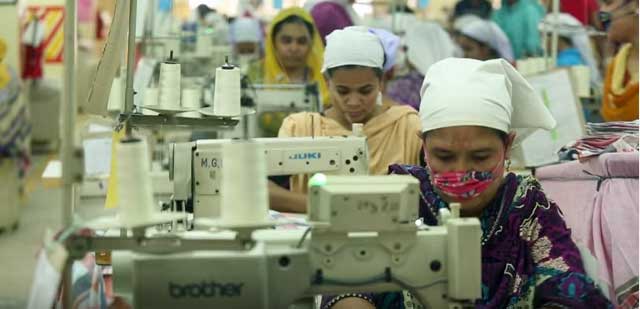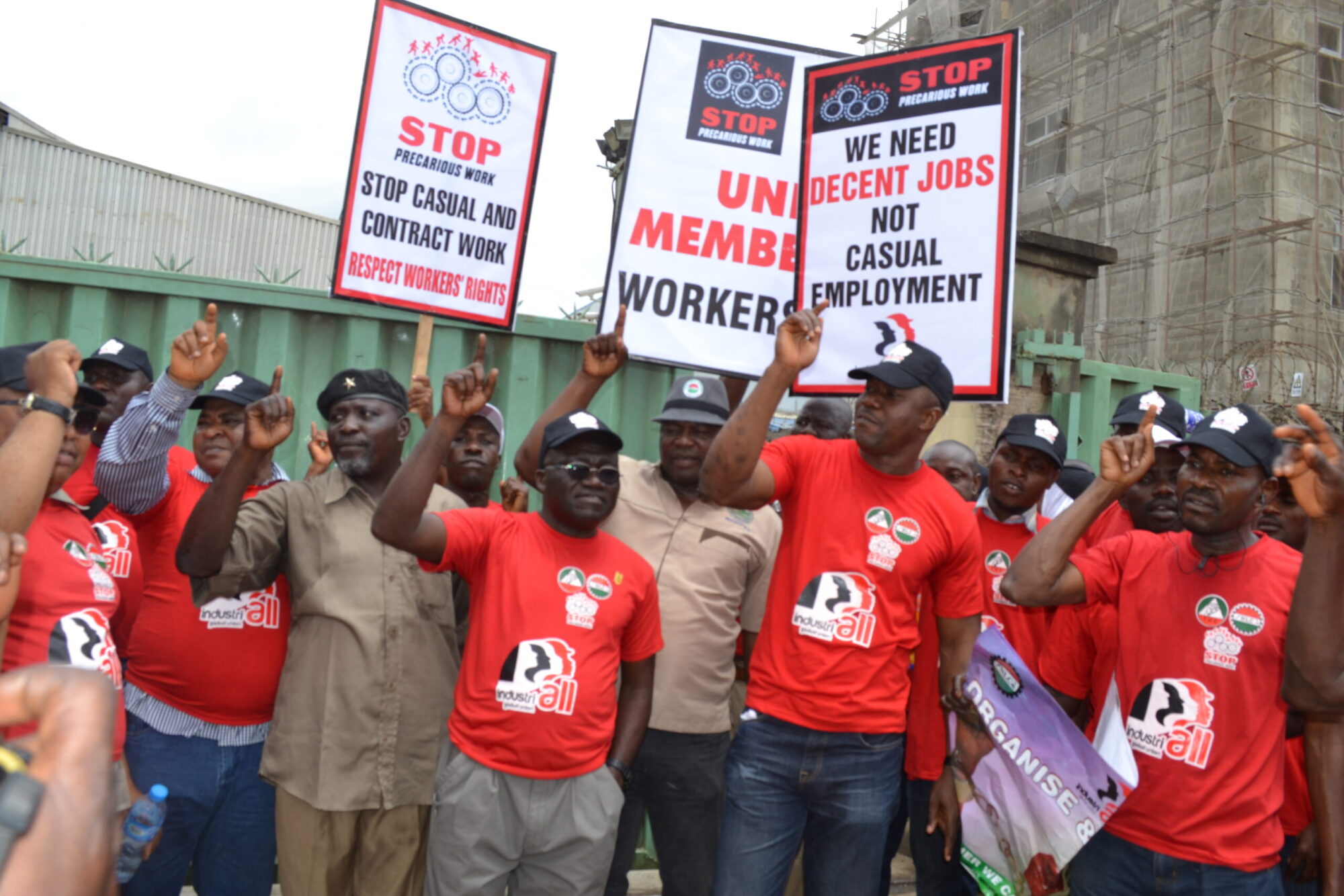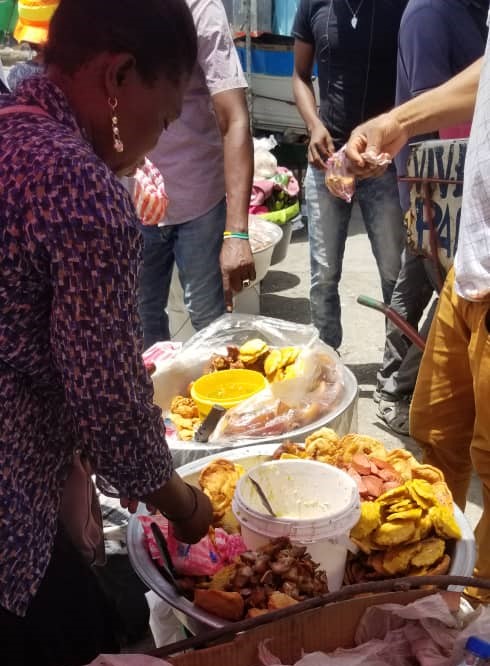With the unexpected shift in Bangladesh political leadership, garment workers say they are hopeful but cautious about the effect on their wages, working conditions and fundamental civil rights, such as the freedom to form unions. “We hope something positive will...
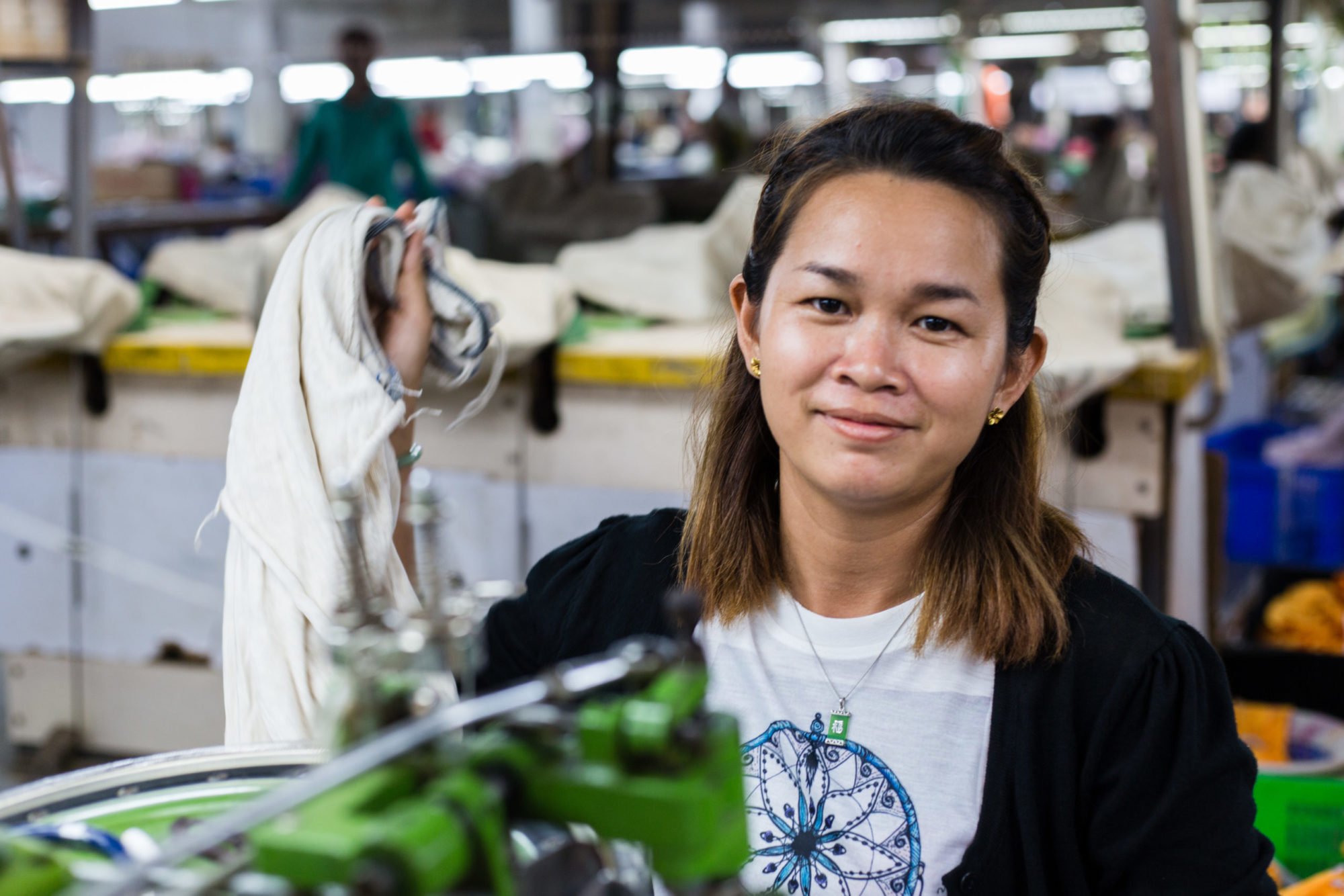
Heng Rithy, a garment worker in Cambodia, says her factory has good working conditions and she can support her family because workers have a union. Credit: Solidarity Center/Shanleystudio
An estimated 450 million people work in global supply chains—in textiles, retail, fisheries, electronics, construction, tourism, transport and agriculture. Economic globalization has created benefits for consumers, business and suppliers, but the practice of sourcing goods and services from countries where wages are low and laws are lax often results in jobs that are insecure and informal, involving dangerous workplaces, forced overtime and even slavery.
The Solidarity Center works with unions, worker associations and other allies in countries throughout the global supply chain in countries such as Bangladesh, Honduras, Lesotho, Morocco and Uzbekistan to address poverty wages, dangerous and unsafe working conditions and limited rights on the job.
For instance in Lesotho, the Solidarity Center partnered with labor rights and women’s rights organizations to negotiate a worker-centered, precedent-setting program to comprehensively address the rampant gender-based violence and harassment denying thousands of women garment workers a safe and dignified workplace. The Solidarity Center is helping lead training in addressing and preventing sexual harassment and other forms of gender-based violence among 10,000 workers at five factories there.
Migrant workers comprise a large part of the global supply chain, traveling to countries such as Malaysia to work in factories and to Gulf countries as domestic workers. The Solidarity Center partners with unions such as the Central Organization of Trade Unions-Kenya and the Kuwait Trade Union Federation to advocate for policies and legislation that address the exploitation and abuse migrant workers face, and educate workers who plan to work abroad about labor laws and workplace rights in their origin and destination countries.
WEST AFRICA UNIONS FIGHT FOR WORKER RIGHTS IN FREE TRADE AGREEMENT
The African Continental Free Trade Area (AfCFTA) was sold with the promise to “promote and attain sustainable and inclusive socioeconomic development, equality and structural transformation.” However, many governments’ failure to engage civil society partners,...
Haiti Garment Workers Need Four Times Their Wages to Get By
Haiti garment workers should be paid four times their current salaries just to keep pace with the cost of living, a new Solidarity Center study finds. The High Cost of Low Wages in Haiti: A Living Wage Estimate for Garment Workers in Port-au-Prince, determined that...
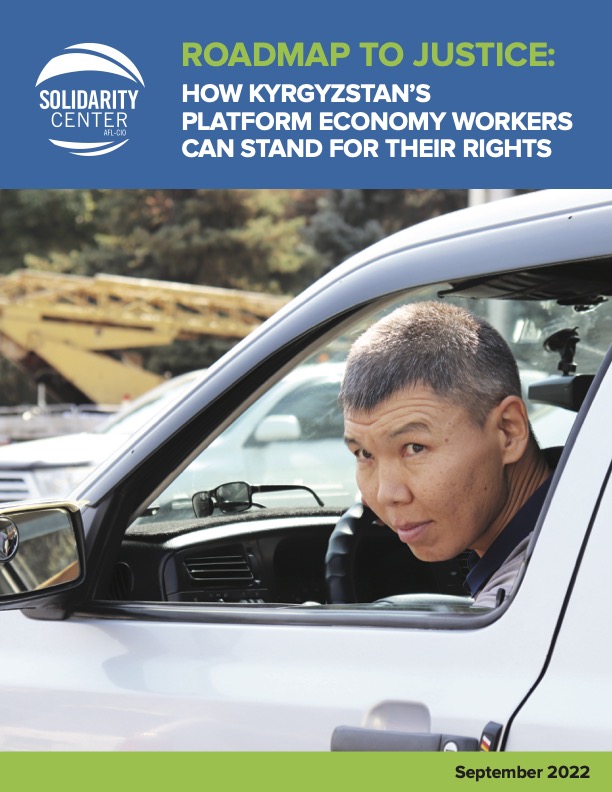
Roadmap To Justice: How Kyrgyzstan’s Platform Economy Workers Can Stand For Their Rights (2022)
The digital platform share in the economy in Kyrgyzstan is growing, and with that growth, an increasing number of people are working through these platforms. Due to its growth, the vulnerability of workers in this sector has also become more apparent, especially for...
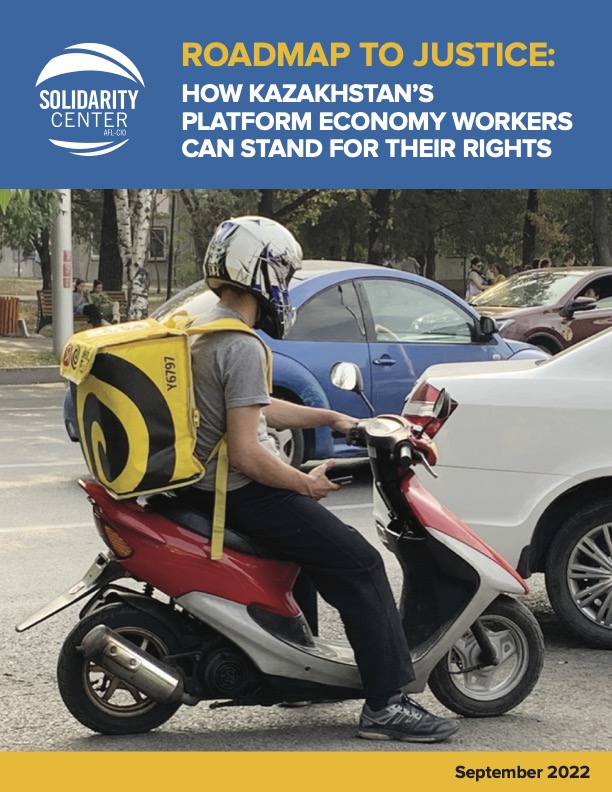
Roadmap To Justice: How Kazakhstan’s Platform Economy Workers Can Stand For Their Rights (2022)
Kazakhstan has the most developed digital market in the region, and digital platform companies operate in Kazakhstan’s major cities. With the sector’s growth, the vulnerability of workers in this segment has also become more apparent, especially for marginalized...
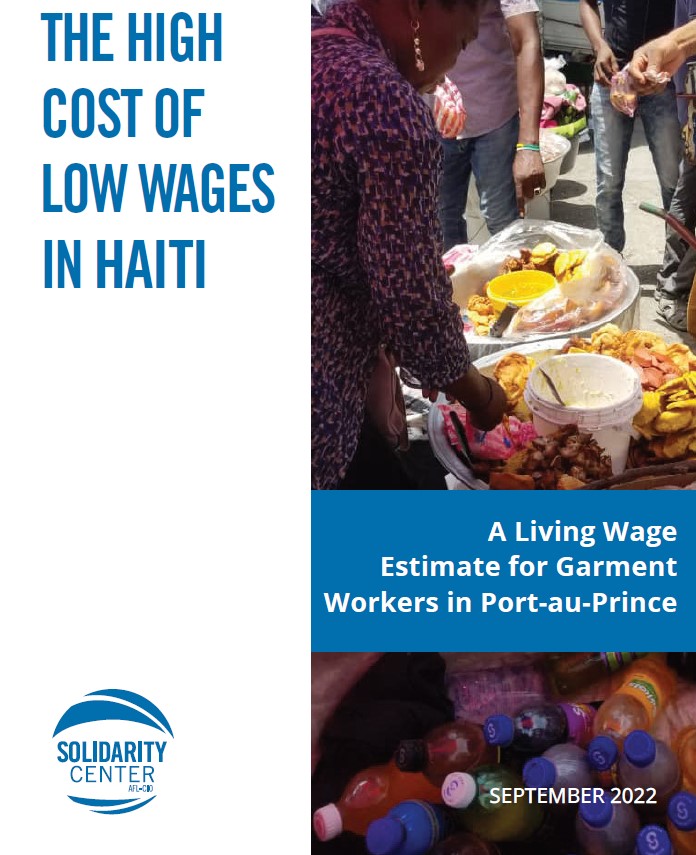
THE HIGH COST OF LOW WAGES IN HAITI (2022)
Haitian garment workers face increasing difficulty in covering basic expenditures as prices soar while wages hover far below the cost of living. Download in English and Haitian Creole.
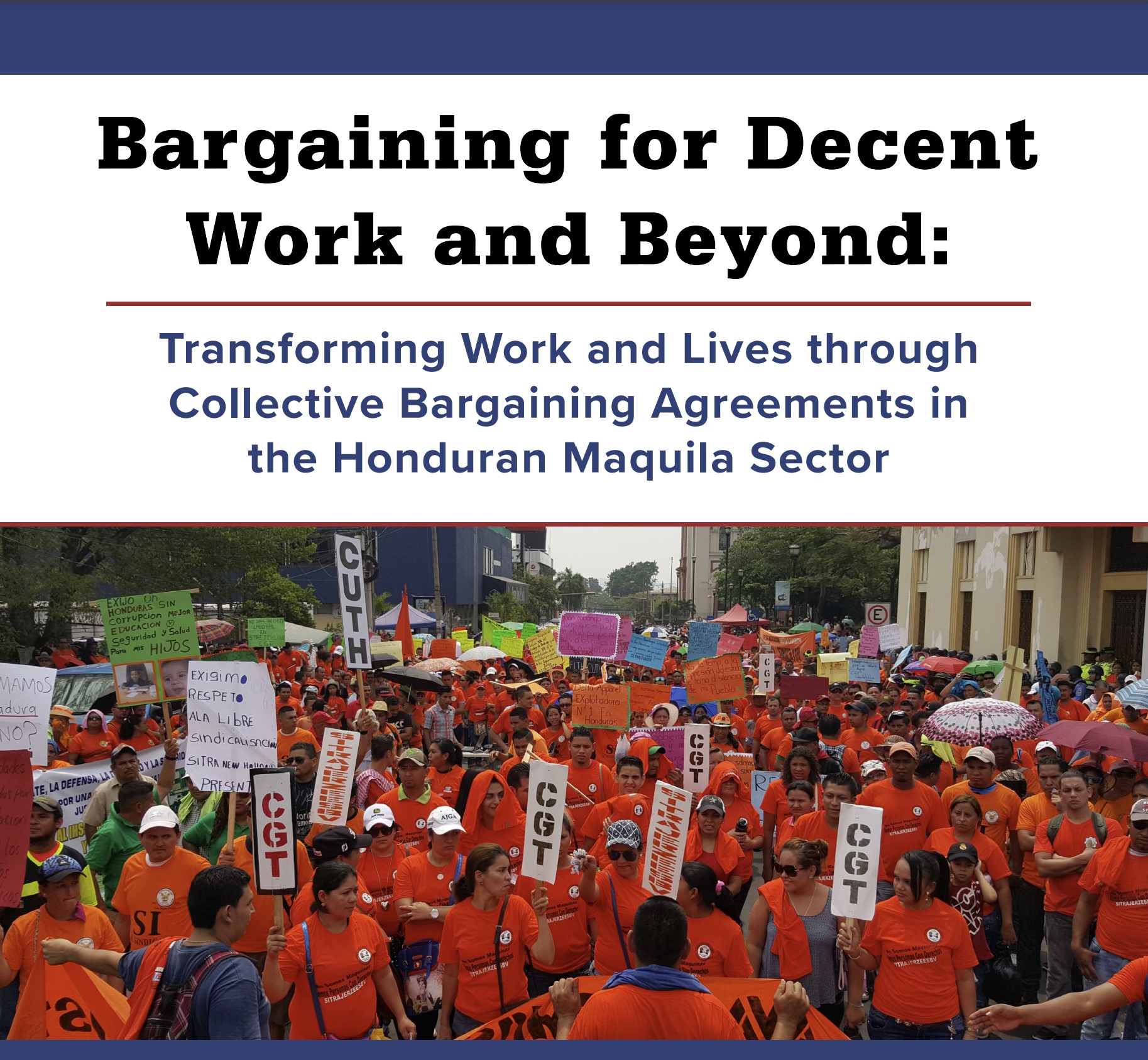
Bargaining for Decent Work and Beyond: Transforming Work and Lives Through Collective Bargaining Agreements in the Honduran Maquila Sector (2022)
Unions in the Honduran maquila sector bargain to improve work conditions and address violence at work, and so provide options for those who may migrate to seek jobs, a Solidarity Center report finds. Download in English and Spanish.
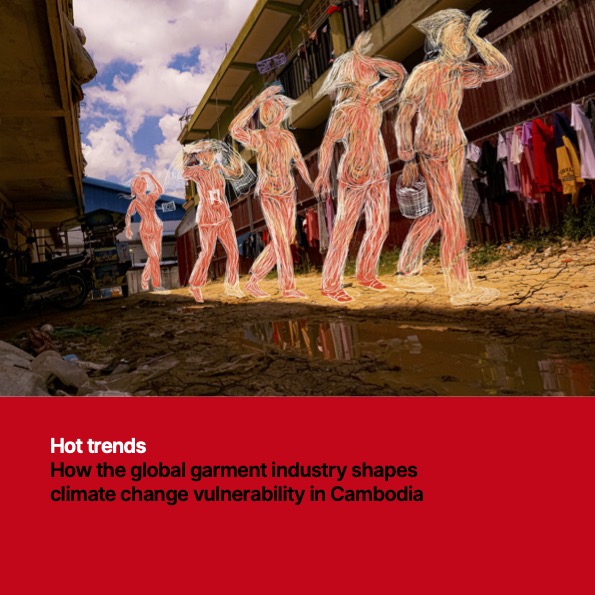
Hot trends: How the global garment industry shapes climate change vulnerability in Cambodia (2022)
In response to mounting public pressure, companies have moved rapidly to launch media campaigns highlighting their commitment to a green future. The global garment industry is no different. Behind much of this “greenwashing” remains the reality that the garment supply...
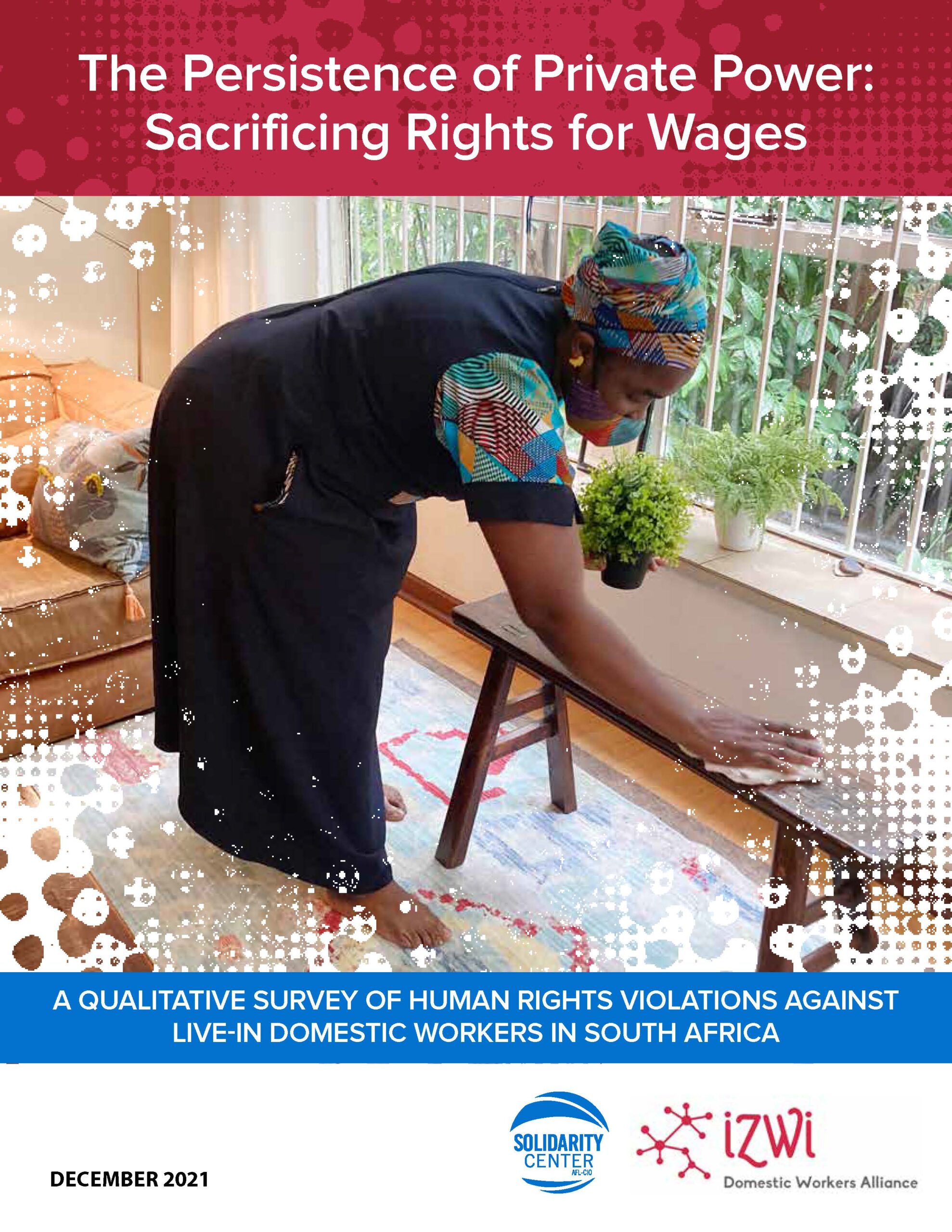
The Persistence of Private Power: Sacrificing Rights for Wages (South Africa)
"The Persistence of Private Power: Sacrificing Rights for Wages," a qualitative survey of human rights violations against live-in domestic workers in South Africa, is co-published by IZWI Domestic Workers Alliance—a network of domestic workers in Johannesburg that...

